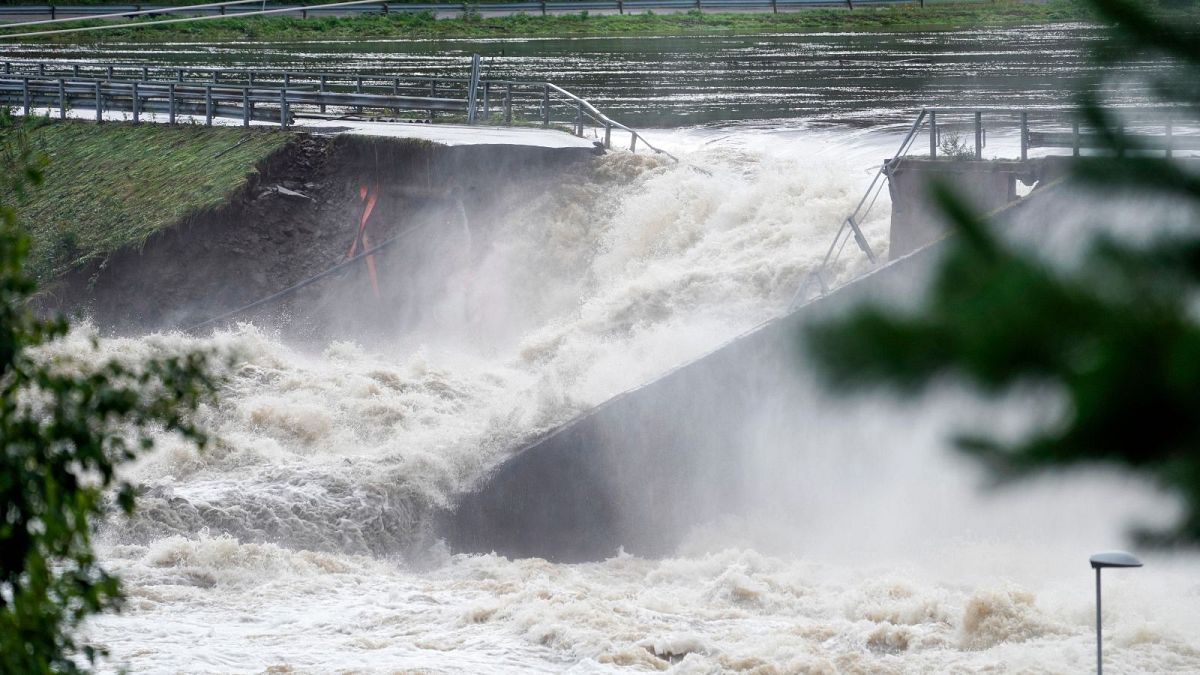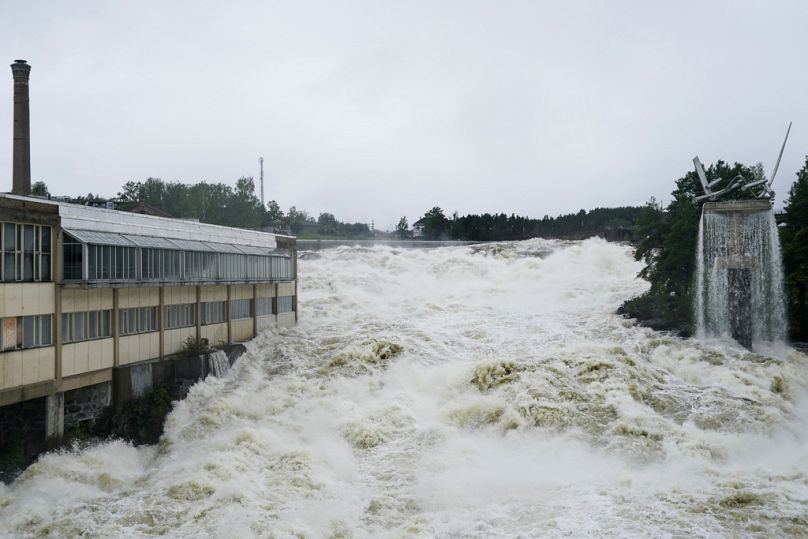From torrential rain and subsequent flooding in Norway and Croatia, to scorching temperatures in Spain and Portugal, we take a look at this week's weather across Europe.
Norway: More evacuations considered
More evacuations were being considered on Friday in southeastern Norway, where the level of water in swollen rivers and lakes continued to grow after days of torrential rain.
Huge amounts of water, littered with broken trees, debris and trash, were thundering down the usually serene rivers. It flooded abandoned houses, left cars coated in mud and swamped camping sites.
One of the most affected places was the town of Hønefossen where the Begna river had gone over its banks and authorities were considering moving more people downstream for fear of landslides. Up to 2,000 people have already been evacuated.
“We constantly try to think a few steps ahead. We are ready to press an even bigger red button,” Magnus Nilholm, a local emergency manager in the Hønefossen region, told Norwegian broadcaster NRK.
Ivar Berthling of Norway's Water Resources and Energy Directorate (NVE) told Norwegian news agency NTB that the water levels around Hønefossen, some 40 kilometres north of Oslo, were expected to continue rising and remain high until at least Monday. Up north, near the Strondafjorden lake, the water level was reported to be 2.5 metres above normal.
Storm Hans on Monday and Tuesday battered northern Europe, leading to transportation distruption, flooding and power cuts across the Nordic and Baltic region.
Croatia: Drava reaches historic highs
In Croatia, the river Drava reached record-high levels of 704 centimetres. About 50 holiday homes along the river on the other side of the embankment were flooded.
Recent torrential rain had prompted authorities to declare a 'state of emergency 'in parts of the country.
Local authorities now say the situation is under control and sandbags are being installed to prevent seepage.
“I think that flood defence has been established in all critical places, the situation should be closely monitored for the next two or three days, but we hope that there will be no major problems”, said Tomislav Novosel from the Croatian Waters Flood Defence Centre.
Spain: Third heatwave of the summer
Meanwhile, Spain is suffering through its third major heat wave of the summer, as temperatures climbed to a scorching 46º Celsius in the eastern city of Valencia.
The local government opened a special shelter for homeless people to escape the sun and access food, fresh water and a shower.
The city centre was emptier than usual, as many people escaped to the Valencian beaches or countryside.
"At night we use the air conditioning and a fan," says Roberto Gimenez, a local resident. "During the day we try to leave the house as late as we can if we don't have work to do, and go to the beach" he adds.
Spain's meteorological agency this week warned that the average temperature across the country could hit a seven-decade record.
"This will probably be the hottest five August days in 73 years," said AEMET, the state meteorological agency, with almost the whole country under red weather alerts.
Portugal: People flee to escape forest fires
Huge forest fires continued to rage across southern Portugal. Winds and extreme heat drove fires that have devastated 15,000 hectares of trees.
The biggest blazes were seen in the southern Odemira region, where thousands of people were evacuated with the fires reaching the Algarve, a hugely popular tourist destination.
Experts say the recurring heat waves, which have been getting longer and more intense, are a consequence of climate change.
The Iberian Peninsula is bearing the brunt of climate change in Europe, with droughts and wildfires becoming more and more common.


